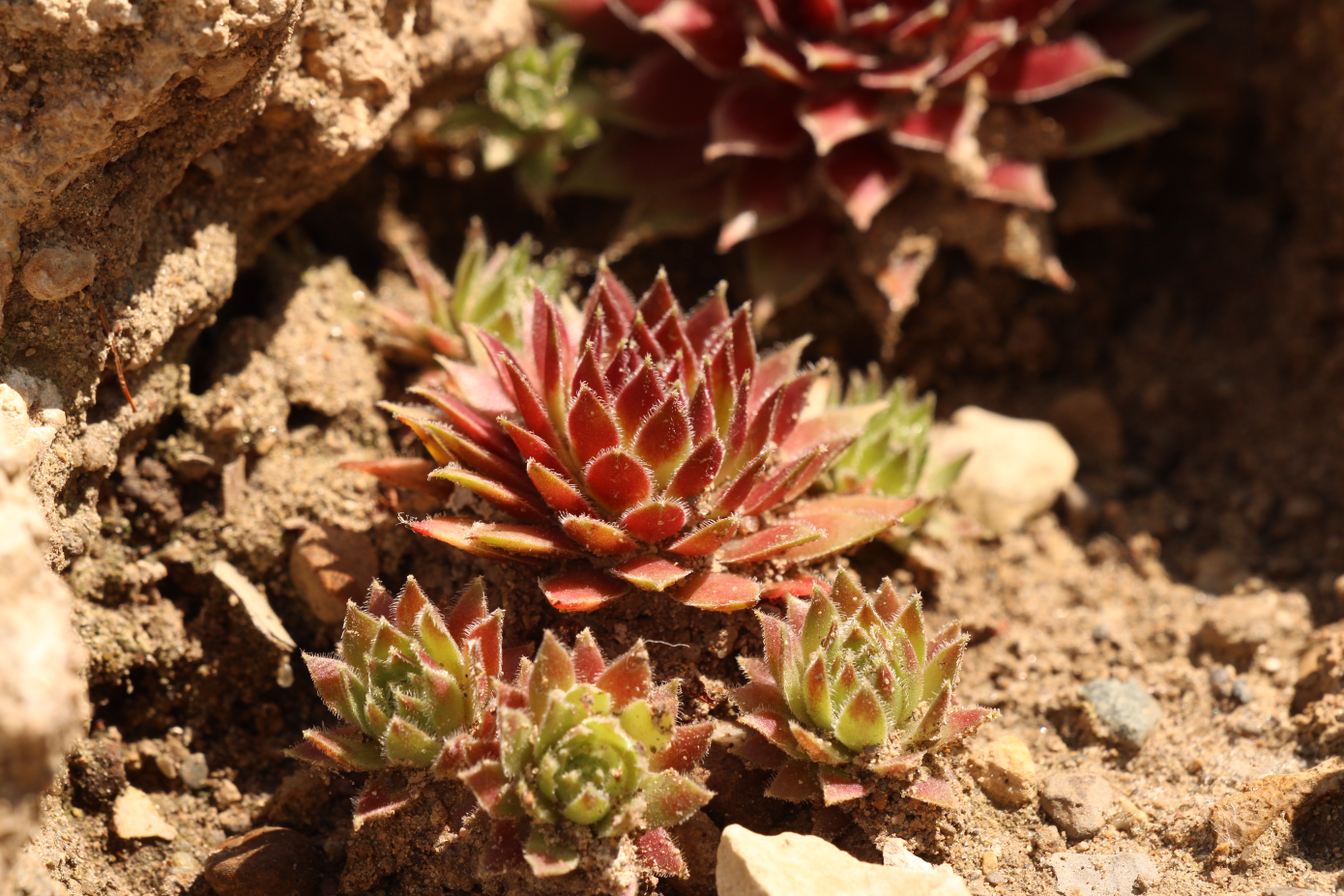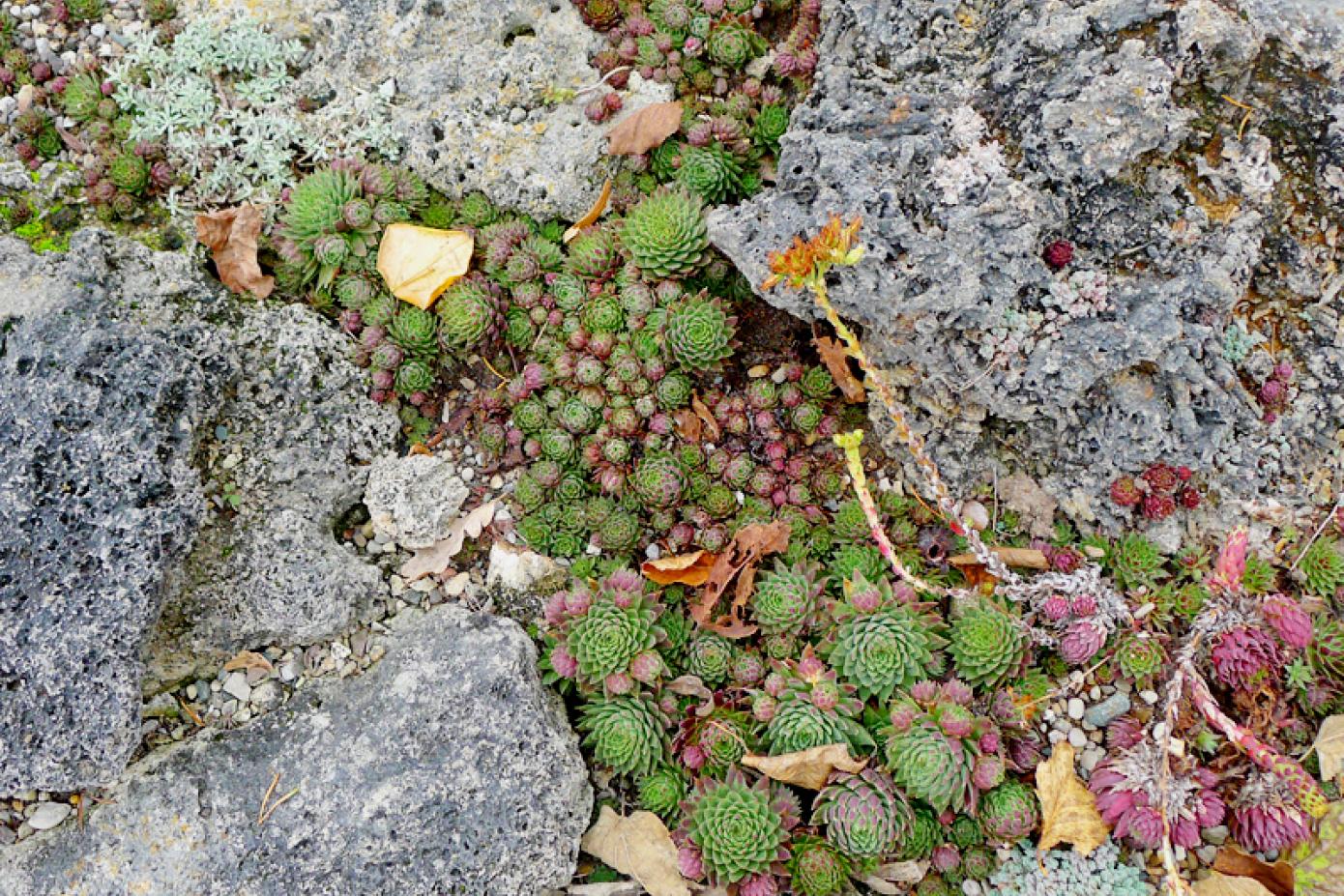Rocky Resilience
The Rock Garden at Matthaei Botanical Gardens showcases the resilience of life in harsh terrains through a diverse array of plants with unique adaptations to rocky landscapes. Utilizing local tufa rock as a living medium, it provides a habitat for various species, including succulents and plants thriving in high-pH conditions, honoring the intricate tapestry of biocultural diversity amidst challenging natural settings.

Biocultural diversity in the Rock Garden
The Rock Garden at Matthaei Botanical Gardens stands as a testament to life's resilience in the challenging rocky and alpine terrains. Within this space, an array of plants, displaying various adaptations to these demanding landscapes, pays homage to the intricate tapestry of biocultural diversity. Among these resilient species are a range of plants thriving in high-pH soils and water. Succulents, tight cushions, creeping mats, and silvery foliage abound, each uniquely equipped to endure the naturally hot and dry conditions found in exposed crevices and cliff faces.
Inviting a closer look
Many of the plants are quite small, so look carefully. While the peak bloom is in spring, the plants are of interest throughout the growing season. Several that grow here are the original plants from donor Marie Azary. All of these plants are hardy to this area, provided their unique growing conditions are met, including specific drainage requirements.
Many rock gardens use volcanic rock to create the small pockets of soil and correct drainage these plants need, but we have used a local rock source called tufa.

Tufa: a living medium
Tufa, a calcareous rock primarily composed of calcium carbonate, plays a distinctive role within our ecosystem. Frequently confused with porous rocks like volcanic tuff or coral, tufa's formation stems from a chemical process involving limestone, water, and carbon dioxide. This living rock is far from ancient; it continues to form in specific regions, boasting an irregular shape and texture influenced by its precipitation patterns.
In gardening, tufa's porous and soft qualities make it invaluable. Its capacity to retain significant amounts of air and water is essential for fostering plant growth. Moreover, its adeptness at absorbing moisture from the soil while ensuring proper drainage renders it an ideal medium for gardening endeavors.
